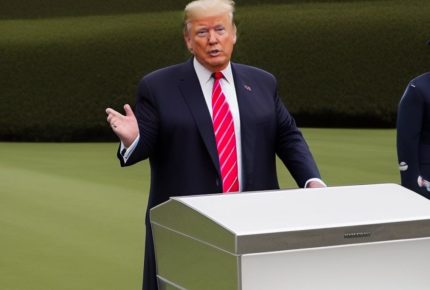Former President Donald Trump’s sentencing, originally scheduled for September 18th, 2024, has been rescheduled to November 26th, following a decision by Judge Juan Merchan. This new date, which comes after the presidential election, has raised concerns and speculations among political commentators and the public alike. Many question whether the delay was influenced by the timing of the election, potentially giving Trump an advantage by allowing him to continue campaigning without the immediate pressure of legal consequences.
However, Judge Merchan emphasized that the decision was made solely to maintain the integrity of the judicial process, ensuring that the sentencing remains focused on the legal matters at hand. The judge underscored that the jury’s verdict must be respected and handled without the distractions or influence of the highly charged political climate surrounding the 2024 election. This delay, according to Merchan, allows the court to proceed with fairness and impartiality.
Donald Trump’s Legal Team’s Tactics, Delaying Sentencing Through Various Means
Since his conviction in May 2024 on 34 felony counts related to falsifying business records, Trump’s legal team has employed various strategies to postpone his sentencing. The team has persistently argued for more time to prepare, utilizing procedural motions and appeals to extend the process.
One of the key reasons for the delay has been the pending interpretation of a recent Supreme Court ruling that could potentially affect Donald Trump’s case. Judge Merchan has allowed time for the legal parties to submit arguments on the implications of the ruling, with a decision on this expected by November 12th.
Judge Merchan’s Rationale, Avoiding Appearance of Political Influence
Judge Merchan made it clear that his primary concern was to avoid any suggestion that the legal proceedings were influenced by the political calendar. By pushing the sentencing beyond the election, the judge aimed to shield the case from the volatile political atmosphere and public opinion surrounding the presidential race.
The judge also emphasized the need to protect the court’s integrity, maintaining that the legal system must remain impartial. He reiterated that the delay was necessary to ensure that justice is served fairly, irrespective of any external political developments.
Potential Sentence, Up to Four Years in Prison
Donald Trump faces a potential sentence of up to four years in prison, though the final decision rests in Judge Merchan’s hands. Other possible outcomes include a fine, probation, or a reduced jail term, depending on the judge’s interpretation of the circumstances surrounding the case.
The charges stem from accusations that Donald Trump attempted to hide a payment to adult-film actress Stormy Daniels during his 2016 presidential campaign. The payment was allegedly made to silence Daniels about an extramarital affair, which Donald Trump has consistently denied.
Donald Trump’s Claims of Innocence, Describing the Case as a “Witch Hunt”
Throughout the legal process, Donald Trump has steadfastly claimed innocence, referring to the case as a politically motivated “witch hunt.” He argues that the charges are part of a broader effort to damage his political standing and undermine his potential return to the White House in 2024.
In numerous public statements, Donald Trump has continued to attack both the legal system and his opponents, asserting that the case is an attempt to silence him. Despite the conviction, Donald Trump’s core base of supporters has largely remained loyal, echoing his belief that the legal process is politically biased.
Impact on 2024 Presidential Campaign, Sentencing Date’s Timing and Voter Perception
The timing of Donald Trump’s sentencing, falling after the 2024 election, has raised concerns about its potential impact on voter perception. Political analysts suggest that the delay could provide Trump with an opportunity to frame the legal battle as part of his ongoing narrative of political persecution.
Meanwhile, Donald Trump’s opponents have criticized the delay, suggesting that it gives him an unfair advantage by allowing him to campaign without the burden of an immediate legal reckoning. As the race for the presidency intensifies, the legal case remains a contentious issue in the court of public opinion.














